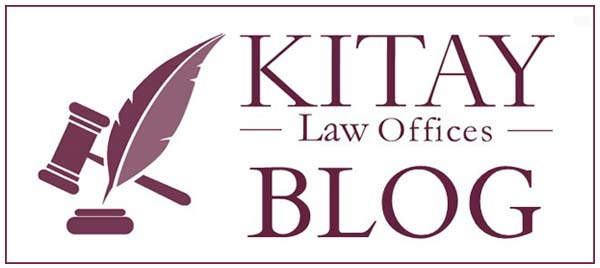Are you trying to collect Unemployment and Workers’ Comp benefits in PA? Want to know the difference between collecting Unemployment and Workers’ Comp? Curious if you can collect Unemployment after your Workers’ Comp settlement? We’ll answer these questions, and more, in this article.
Collecting Unemployment and Workers’ Comp: What’s the Difference?
Unemployment and Workers’ Comp are two completely different programs. At first glance, they may appear similar. However, they provide very different benefits. In addition, they are meant for different purposes. In a nutshell:
- Unemployment gives you income temporarily while you are in between jobs.
- Workers’ Comp compensates you for suffering an injury on the job.
There are plenty of details to cover about each of these, plus special circumstances where you can collect both, so let’s dive right in.
See How We Can Help You: Workplace Injury Lawyers in PA
KITAY LAW OFFICES
HAS BEEN FEATURED IN:

Qualifying for Unemployment Compensation
The Pennsylvania Unemployment Compensation Law is quite long at over 200 pages. Additionally, there is an Unemployment Handbook you can download. Above all, the unemployment program provides temporary income while you move from one job to another. You can qualify for these benefits if you have a work injury, but it is not necessary.
You can file an application for Unemployment in many different ways. Here is a list:
- Online: Follow this link to the Unemployment website where you will find a button that allows you to file your application online.
- On Paper: You can follow this link to a copy of a paper form you can then mail to Unemployment. The form includes the proper address.
- Phone: You can call 1-800-313-7284 and complete your application over the phone. However, you should be aware that there can be long wait times.
- Videophone: For those who typically communicate using sign language, you can call a videophone line at 717-704-8474. Currently, this service is available every Wednesday from 8:00 a.m. to 4:00 p.m.
- TTY: Those who are deaf or have difficulty hearing can call 1-888-334-4046.
Applying to Collect Unemployment is a 3-step process.
In order to collect unemployment benefits, you must meet each of the following requirements:
- Financial Eligibility
- Acceptable Separation from Employment
- Receive and Maintain Benefits
Step 1: Financial Eligibility for Collecting Unemployment
To collect Unemployment benefits, the Pennsylvania Department of Labor will look at the income you earned during your “Base Year.” This is a strange term, but it is very important. Simply put, your Base Year is the first four of the last five quarters prior to the time you apply for Unemployment benefits. One quarter is a three month period of time. Therefore, Unemployment will look back five quarters prior to the date of your application and examine the income you earned in the first four of those quarters.
If you earned enough during your Base Year, you can be eligible to collect Unemployment benefits. These weekly benefits pay out for a maximum of 26 weeks. While there are some additional requirements in order to be financially eligible, this explanation is a good start.
RECENT SETTLEMENTS:
Step 2: Acceptable Separation from Employment
At this Step, the Pennsylvania Department of Labor will look at the reason you are applying to collect Unemployment benefits. You must show that you are either completely unemployed or working reduced hours. Further, it must not be your fault. This is usually where you and your employer may disagree.
The clearest circumstance where you may be eligible for collecting Unemployment is if you have been laid off due to a lack of work. In this situation, it is clearly not your fault that you are no longer working.
Interestingly, you can still get Unemployment if you quit your job. However, this is a more difficult situation. For example, you will probably be denied benefits if you were simply unhappy with your work, your boss, or your hours. Here, the reason you are not working is really due to your own decision to leave the job.
On the other hand, it’s possible that difficult circumstances really gave you no choice but to quit. This can happen when you have a work injury and your employer fails to give you light duty work. In addition, they may have forced you to do work that is heavier than your doctor’s restrictions allow. Approval for Unemployment benefits is more likely in this situation. We will cover this in more detail later in this article.
Step 3: Collect and Maintain Unemployment Benefits
Once you are approved, you still have more work to do. In order to continue collecting your Unemployment benefits, you must file a claim every two weeks. This is called your “bi-weekly claim.” If you do not file your bi-weekly claim, you will not receive the benefits for which you were approved.
You have multiple methods available to file your bi-weekly claim:
- Online: Follow this link where you can file your bi-weekly claim online.
- Phone: You can file by phone by calling 888-255-4728. For those who are deaf or have difficulty hearing, you can call 888-334-4046.
- Mail: This is only allowed under special circumstances. If you are unable to file your bi-weekly claim using any of the other methods, call 888-313-7284 to see if you can file your bi-weekly claim by mail.
Once you have started receiving your Unemployment benefits and you learn how to file your bi-weekly claim, you must also begin looking for work. You must register for job search services through Pennsylvania CareerLink. If you do not complete this registration and participate in job search activities, your Unemployment benefits will stop.
Qualifying for Workers’ Comp
We have previously written about How to File & Get Benefits through Pennsylvania Workers’ Compensation. The Pennsylvania Bureau of Workers’ Compensation has also created a diagram that helps explain the process of applying for Workers’ Comp benefits. Finally, we have developed a comprehensive Workers’ Compensation Litigation Timeline that explains the process of fighting for your benefits in court.
Importantly, Workers’ Comp serves a different purpose than Unemployment. To qualify, you must have suffered an injury while acting in the course and scope of your employment. In most cases, there are two types of benefits available if you have suffered a work injury. These benefits include wage loss payments and coverage for your medical treatment related to your injury. In some cases, you can also receive compensation for scarring, amputation or loss of use of a body part, loss of sight, hearing loss, or an occupational disease.
Can you collect Unemployment and Workers’ Comp?
Yes, sometimes. While this is a topic you should discuss with your attorney, you can sometimes collect Unemployment and Workers’ Comp benefits at the same time. If you have suffered a work injury but your claim has been denied, you will have to fight for your benefits in court. You may be eligible to receive Unemployment benefits while you are also fighting for Workers’ Comp benefits. Further, you may be able to file an application for Unemployment benefits after you resolve your Workers’ Compensation case.
Can you collect Unemployment while fighting for Workers’ Comp?
Yes, sometimes you can receive Unemployment while fighting for Workers’ Comp benefits. Here again it depends on the circumstances. Let’s say you suffered a work injury and received light-duty work restrictions from your doctor. You likely notified your employer that you could work within your restrictions. However, your employer may have failed to accommodate your restrictions. Maybe they said, “We don’t have anything you can do with those restrictions.” Or maybe they said, “Don’t come back until you can work your full-duty, regular job.” Finally, your employer may have asked you to perform work that does not comply with your light-duty work restrictions, which caused you to stay home from work instead. In situations like these, you may be eligible to receive Unemployment benefits while you are fighting for your Workers’ Comp benefits in court.
Be aware that Workers’ Comp gets a credit for any money you receive from Unemployment while you are fighting your case in court. In other words, you cannot receive double benefits. So, if the Workers’ Comp Judge eventually awards you wage loss benefits, but you also received Unemployment benefits covering that same period of time, the Workers’ Comp benefits you receive will be reduced. This does not mean that you have to take money out of your own pocket to pay back Unemployment. Instead, your Workers’ Comp wage loss benefits get reduced by the amount of money you already received from Unemployment.
Can I collect unemployment after my Workers’ Comp settlement?
Although possible, it is relatively rare to receive Unemployment after your Workers’ Comp case is settled. This is true for a number of reasons.
If your Workers’ Comp case resolves via settlement, most of the time your employer or its insurance company will require that you sign a letter of resignation as a condition of the settlement. Put another way, your employer may agree to settle your Workers’ Comp case only if you also agree to resign from your job. While this may not feel fair, this is reality in many cases.
If you apply for Unemployment benefits after signing a letter of resignation in connection with your Workers’ Comp settlement, your employer will use it to dispute your claim for Unemployment. Unfortunately, numerous cases have shown that you are not entitled to Unemployment in this situation.
On the other hand, sometimes your attorney can help with this situation as part of your Workers’ Comp settlement. It is true that Unemployment and Workers’ Comp are two completely different systems. As a result, it is impossible to guarantee that you will be approved for Unemployment after your Workers’ Comp case settles. However, your attorney may be able to obtain an agreement that your employer will not challenge your application for Unemployment benefits. If this is part of the terms of your Workers’ Comp settlement, you will have a higher chance of being approved for Unemployment after your Workers’ Comp case.
Kitay Law Offices can help you collect Unemployment and Workers’ Comp
If you or a loved one suffered a work injury and need help fighting for your benefits, Kitay Law Offices can help. Call 888-KITAYLAW for a free consultation with our experienced attorneys.



